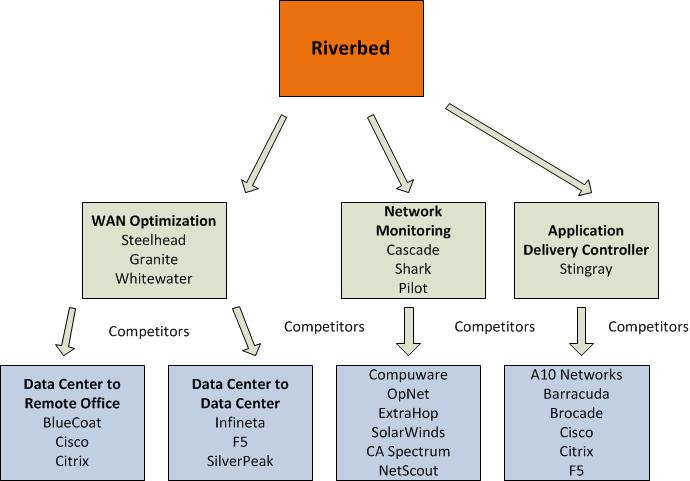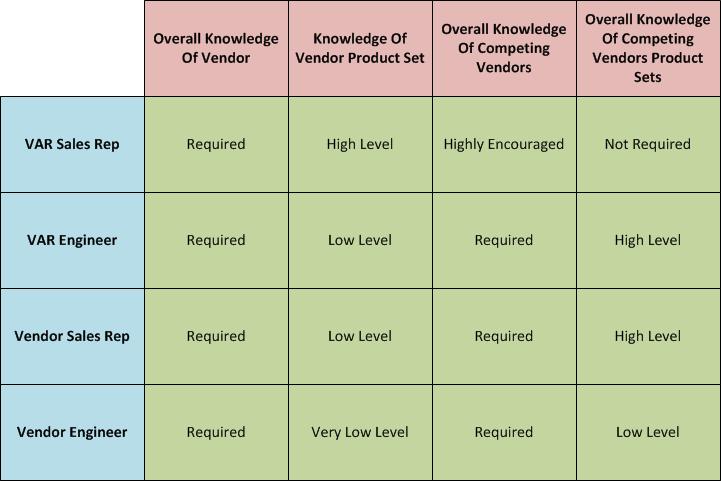 There’s something to be said for doing post-sales VAR/vendor work and corporate IT operations work. It has its major benefit in the familiar. By that, I mean that if you consistently perform the same type of work over and over again, you can get fairly proficient at it. Whether that is the consultant who integrates phone systems on a regular basis or the corporate IT engineer who maintains a network of equipment that only changes during equipment refresh times, they have an advantage.
There’s something to be said for doing post-sales VAR/vendor work and corporate IT operations work. It has its major benefit in the familiar. By that, I mean that if you consistently perform the same type of work over and over again, you can get fairly proficient at it. Whether that is the consultant who integrates phone systems on a regular basis or the corporate IT engineer who maintains a network of equipment that only changes during equipment refresh times, they have an advantage.
I am finding that the pre-sales side of things, for those who are employed in the reseller space, or even the vendor for that matter, isn’t quite as advantageous. I say that not in a negative light, but simply pointing out that there are far more variables involved in the pre than the post. Now I suppose I could make the argument that there are quite a few situations in which you aren’t going to have a tremendously difficult time selling a solution. Perhaps you are pitching the market leader in that particular space, or the customer has indicated they only want a solution from a particular vendor. However, there are too many instances in which you are pitting your solution against others. By others, I mean competing vendor solutions. VAR on VAR violence tends to center around the human factor(account management/engineering) and not so much the product.
Let’s ignore price for this particular post of mine. I know it heavily influences deals, but there’s nothing interesting to me about being cheaper. It just means your overhead is less, or your ability to absorb loss is greater. Winning deals on price alone is like fishing with dynamite. It gets the job done, but there isn’t any real glory in it. I also acknowledge that there seems to be a lot of dynamite out there catching fish these days. 🙂
Analyze, Analyze, Analyze
Ever talk to sports addicts? Many of them have a remarkable ability to pop off facts and ideas about a variety of things surrounding a particular sport or sports. They’ll know who was traded to what team and what that means for the overall team’s chances of winning and losing. They can recall batting averages, average rushing yards, field goal percentages, win/loss records, and all kinds of statistics that boggle the mind.
That same dedication is required for pre-sales when it comes to technology. I don’t care if you sell for one vendor or a dozen; you better know the competition. You also better know about the products you are selling as well. You want to win don’t you?
One Such Example
Here’s a breakdown of one company. I purposely picked Riverbed because they have more than one product, but they don’t have the portfolio spread that Cisco, EMC, or HP do. A flowchart for either of those companies would have taken up too much space.
I have segmented Riverbed into three sections. Within each section, I have listed the product(s) that fall under it. I also listed some competitors in that product space underneath each section. It is NOT an exhaustive list. It’s just a list of enough vendors to give you an idea of the task at hand.
How Much Do I Need To Know?
In order to sell Riverbed, you need to be familiar with the company and the product set. Depending on your role, that level of familiarity varies. I built another graphic illustrating what I think is the depth required to sell a solution such as Riverbed and compete against the other vendors.
For the chart above, the first two columns apply to the vendor referenced in the bottom left in blue. The last two columns would be any other vendor in that space.
At first glance, it would appear that the VAR sales rep gets off the easiest. That might be true if that sales rep is only selling Riverbed. However, as is often the case, that sales rep is selling for a number of vendors. At a minimum, there will be a storage, networking, virtualization, security, and server vendor of choice for each VAR. Some of those areas might be the same vendor, but in any event, there are more product sets to be familiar with than if you worked for a single vendor. The vendor engineer won’t be in that bad of shape when it comes to large companies with a large product portfolio, as there will be specialty engineers who focus on particular areas.
Closing Thoughts
I don’t think for one second that everyone shares my opinion when it comes to pre-sales. I tend to favor being over-prepared, as you never know what will come up. Having a decent knowledge around the product you are selling as well as the various players within that particular space could make the difference between you getting the sale and someone else getting it. I also did not mention the human side of pre-sales, as I just wanted to focus on the technical merits of vendors. Additionally, I don’t want to sound as if I think there are never post-sales challenges. There are.
How do you view pre-sales from a required knowledge standpoint? Let me know in the comments or via Twitter. I’m genuinely interested in all opinions. Especially dissenting ones.




Pingback: Do Pre-Sales SEs Dream of Content Marketing? | SamuraiWriter.com/blog